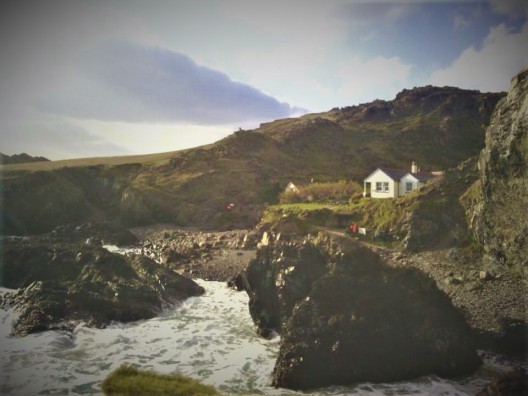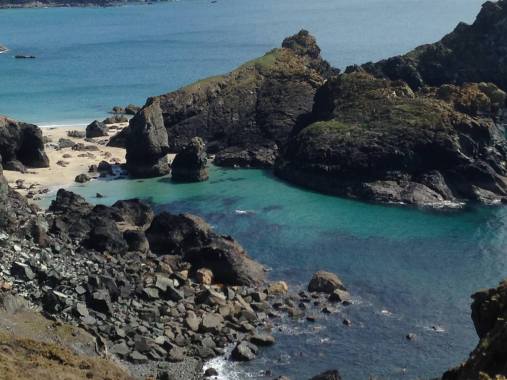I’ve thought hard about writing this piece. The last thing I want is for it to sound like a disabled person droning on about something unfair that happened to them as a child or growing up. At the time I didn’t realise quite what it meant, but in hindsight, some people made some very unfair decisions.
You’re 14, and suddenly you have to choose your GCSE subjects (these are the compulsory exams children take in schools in the UK at age 15-16 that determine what college *high school* and subjects they can take in post-16 education, which subsequently determines which degree subject you go and study for, which in turn is likely to determine the kind of career you might go into) it doesn’t always work out quite like that though, and your career may have nothing to do with the subjects you chose to study as a teenager. Normally we might choose between languages like French, Spanish, German and Latin, between humanities like History, Religious Studies and Geography, and design subjects like Art, Food Technology, woodwork, electronics, metalwork and graphic design for example. Subjects like Maths, English and Science are compulsory, which is a good thing, although I’d like to think in the future young people would appreciate their free education at a young age enough not to feel like they’re being ‘forced’ to study for a Physics GCSE.
When it came to choosing my own GCSEs, there was a conversation which I think went something like this:
Head of Humanities: “Elizabeth, as you are aware the coursework project for Geography GCSE takes place, as it has done for many previous years, at Kynance Cove. This is a very rocky inaccessible beach, so basically you won’t be able to do the Geography GCSE”
Me: “…….um Okay…”
Or words to that effect. I guess that wasn’t really a conversation though, was it? Like I said before, I didn’t really notice what had just happened, at age 14. I had just been told that I wouldnt be able to do an entire GCSE because the couresework involves trips to Kynance Cove, which is beautiful I hear, never been there though personally. So given that we had to pick two humanity subjects out of three available, there wasn’t much of a choice. There wasn’t a choice at all, I would have to study History – The Industrial Revolution – and Religious Studies – not even one of the pretty colourful religions either, just Christianity and its musty damp churches. I think we only went on one school trip for RS, to visit a ridiculously tiny Church that I could barely move around in. And I do appreciate now that the Industrial Revolution was quite, um, influential and important, but at the time I wasn’t particularly bonded with the subject, although I do have the name ‘Eli Whitney’ and his Cotton Gin forever etched in my memory.

The elusive Kynance Cove – Photograph by Hannah Blandford, one of my school peers
That wasn’t the end of the story though. When it came to the design subjects, I was told I wouldn’t be able to pick anything except Food Technology and Art, as the other subjects were too risky for me to possibly be involved in, despite having been in those classes for the first 3 years of secondary school, and I didn’t die then. I’m not quite sure why they came to this decision either, as I usually had an adult helper with me in lessons which involved me needing physical help (as I did in Food Tech and Art also, but I guess I was less of a liability with a spatula than a soldering iron) so it puzzles me as to why my school wouldn’t allow my helper to ensure that I’d be safe in these lessons in order for me to do a Graphics GCSE for the final 2 years of school for example.
Oh but that’s still not the whole story. Way back when I first started secondary school at the tender age of almost 12, I remember being quite excited that my mum had bought me the school PE (Phys Ed) kit, which consisted of a navy blue pleated skirt, I think, and a white collored t-shirt. Not very exiting you might think but it was an improvement on the itchy black leotard and plimsol days of Primary School. Ahead of what I guess must’ve been my class’ first PE lesson, I was told that instead of doing the same activities like running, long-jump, netball and even contemporary dance etc with the rest of my female peers, I’d be doing separate things with my helper. We’d spend a while in the basketball courts trying to beat my own records of bouncing a basketball, and at other times in my first few years at school I’d go to a local hotel’s swimming pool with my helper. Swimming was and still remains a good exercise for me as I can move about a lot more freely in the water, and the perks of my Dad being a Naval Officer meant as kids me and my brother had regular swimming lessons which I loved. However, this still meant I was separated from my peers and my two good friends whilst they were together playing team games and practicing for Sports’ Day, which I was never involved in for the 5 years of secondary school.
There were other times that I didn’t get to do what everyone else had the option of doing – like going on trips abroad with the school – there was a residential trip in year 6 that I couldn’t go on, and I guess we just went along with the advice from the headteacher that it’d be too difficult. I did get to go to France at the end of Year 7 though, which I loved but that was the only trip I went on. I’m pretty sure there was a skiing trip at some point, and whilst I cannot ski, well in the traditional way anyway, I’m sure I’d have liked to have tried para-skiing, or just been strapped to an inflatable doughnut an released down a mountain, whichever. But of course it wasn’t even considered that these kind of monumentous trips abroad could include a disabled student, regardless of whether or not I could ski. It would’ve been nice to go and watch and be with the other kids. Or maybe the trips abroad could’ve included more cultural adventures rather than extreme sports in order to make more events more inclusive of students with differing abilities.
The problem for mainstream schools though, is that disabled students are always the minority. So any resources and funds put in place in order to make subjects and extra-curricular activities available to all students, probably get forgotten about. Imagine if schools had a clunky old racing wheelchair, or a stool for people to sit to throw a javelin, or students’ classmates all got excited at the idea of racing their paralysed classmate down a snowy hill in toboggans. Everyone has to put up with past-it sports equipment, almost chopping their fingers off whilst using an electric wood cutter, and getting homesick whilst away with school, it shouldn’t be any different for disabled kids in mainsream education.
I’d like to think that things are different now than back in 1998 when the internet was too young for new ideas to spread and attitudes didn’t change as fast as they can do now. If you’re the parent of a disabled child, please don’t settle for being told your kid can’t be the next David Attenborough just because the curriculum might contain things they’ll find physically difficult or even impossible. Insist that they change what can be changed.
I completely regret not having been able to study Geography, I loved it for the first three years of secondary school and I know I would’ve continued to enjoy it. I’m fascinated by our world and how it formed and is still changing, and that 12-year-old girl who was really proud of the cardboard model showing gradients of hills, really wishes she could’ve had some of the same adventures as the rest of the year-group when it came to exam years.

The cove last year, still being obnoxiously inaccessible. Photograph by Jolly Rogers, who has known me my whole life.
If you’re a teacher or a headteacher, or a head-of-department and you think there might be parts of the curriculum which aren’t within every student’s grasp, you can change it. And if you’re another disabled kid just like me, don’t be afraid to ask ‘why not?’. I didn’t, and I wish I had.